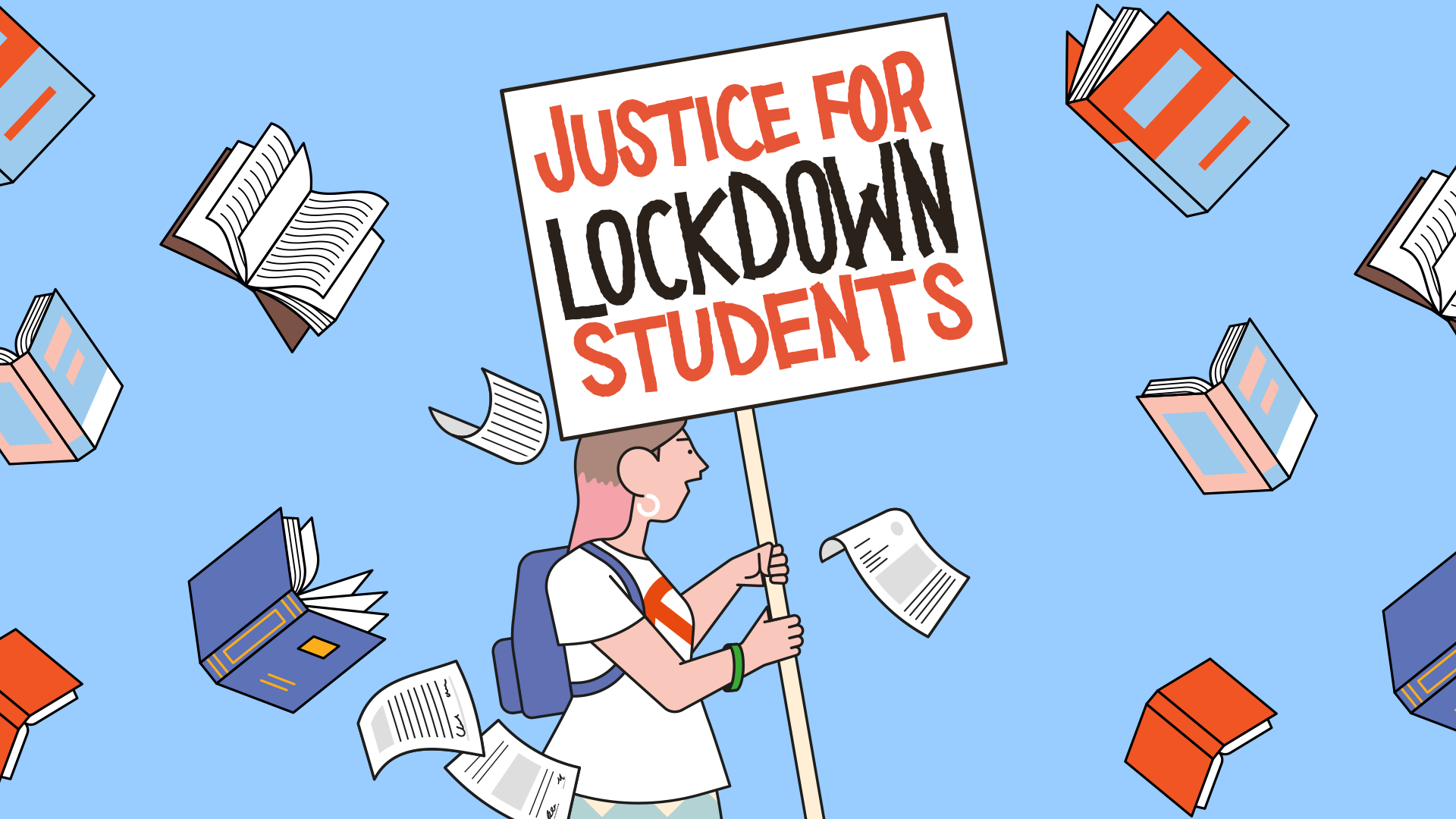“It’s hard to pinpoint what constitutes a breach of contract as universities don’t want to specify exactly what you’re being offered. It doesn’t say you’ll receive 30 contact hours because if there are strikes, they’ll get sued.
“Variation clauses [which give the university the right to change conditions of the student contract without the need for further agreement] are a big issue because the next time there is huge disruption we’ll be in the same position.”
Get the latest news and insight into how the Big Issue magazine is made by signing up for the Inside Big Issue newsletter
One UCL student, who studied natural sciences, asked to remain anonymous because she had such bad memories of her four years there, though mostly studying remotely.
She said: “Our labs were cancelled and moved to simulations online. I felt like I was at the Open University but paying way more. It’s not fun. I moved back home, which was just outside London, but I wasn’t going in much. I don’t feel like I really went there.”
The student felt restricted going through the internal system as an undergraduate, adding: “It’s difficult to get taken seriously or go up within UCL’s system when making a complaint or raising issues.”
Advertising helps fund Big Issue’s mission to end poverty
UCL’s vice-provost Kathleen Armour said: “We remain confident that our complaints process is the best route for our students. Should anyone be unsatisfied with our response to their complaint, they also have the further option of asking the Office of the Independent Adjudicator for Higher Education (OIA), the appointed independent body for student complaints, to review UCL’s decision.”
But this is not an issue restricted to one institution. Now, 142,000 current or former students across the country who feel short-changed by their university experience have signed the Student Group Claim to take legal action and, collectively, they seek compensation from over 100 universities.
The students complain of substandard teaching, poor wellbeing support and exclusively online lectures. Calls for a fair, transparent and comprehensive student contract have intensified.
David Palfreyman OBE, bursar at New College, Oxford and a member of the Office for Students board, advocates for a standardised contract to educate, which would pin universities down to clearer terms. Dennis Farrington, with whom he co-authored The Law of Higher Education, he has been pushing for such a contract since 1991.
Imposing it would protect student rights by forcing universities to outline exactly what they are offering in terms of contact hours and remote delivery relative to face-to-face teaching.
“Dennis and I have long argued that you need to protect the teaching zone and that means students knowing what they are getting, understanding it and holding the university to account,” Palfreyman said.
Advertising helps fund Big Issue’s mission to end poverty
“Students don’t really know what they are buying. The universities ought to make it much clearer to the student what they have to do.”
However, he continued, “it is in a business’s interest to have as vague a contract as possible” in case consumers are dissatisfied with what they sell, to cover themselves for liability.
“No university is going to spell out that it is going to do A,B and C and be on the hook for it if it can avoid it.
“The contractual service is to provide an appropriate quantum of teaching to enable the student a fair chance of passing properly administered exams and assessment.
“Access to library facilities is implied, as is TLC for mentally distressed students. Was that available online and was it as good as face to face on campus?”
Nilusha Perera, a 22-year-old product manager living in London, is one of thousands of students supporting their UCL counterparts from afar.
Advertising helps fund Big Issue’s mission to end poverty
Her time at the University of Warwick, where she studied BSc Mathematics, was plagued with strikes and closures. During her first year the pandemic struck, and teaching went online. Overall, her experience at university was one of disillusionment.
“Lecturers were good at their jobs in person but that didn’t translate to online, the quality of teaching wasn’t the same. I lost love of the subject because of the way we were taught,” she said.
“You apply to universities and get a prospectus that says this department does all these wonderful things, but we didn’t get all of it. Maths students were told we’d have supervisions with a Masters or PhD student for the majority of the first two years and that was cancelled.
“I was diagnosed with anxiety in second year. It was pretty severe and I got no support with it, nothing. Where was my welfare help when that happened?
“Even into third year when there was no national lockdown, they chose to tell students not to come onto campus or use their facilities but still made us pay. I want compensation for that.”
Amari Amusan, 20, started his acting degree at Staffordshire University in 2021 during the third wave of the pandemic but after the national lockdowns ended. Contact was restricted in his first year and he was told to “imagine” acting in close proximity with others because they needed to socially distance.
Advertising helps fund Big Issue’s mission to end poverty
“I could’ve just not gone to uni and looked at a YouTube channel to imagine all of this and not been in debt because I’m still going to have to pay this back. It’s like paying for a subscription that’s supposed to last three years and only getting two. We’re paying for something we didn’t get.”
He awaited the judge’s decision in July outside the high court alongside students from other universities.
“This era more than ever, students are getting together,” he said.
The next generation of students may not have to fight universities for their right to a good education if student rights are enshrined now, to give them the power to hold their universities liable if they fail to deliver.
Do you have a story to tell or opinions to share about this? We want to hear from you. Get in touch and tell us more.









